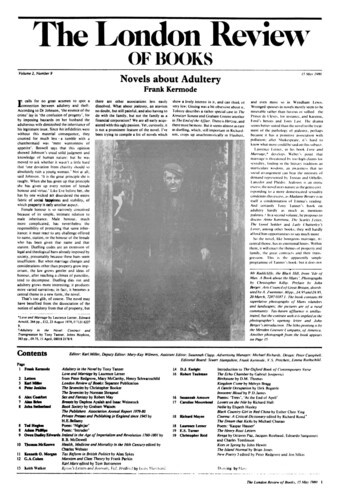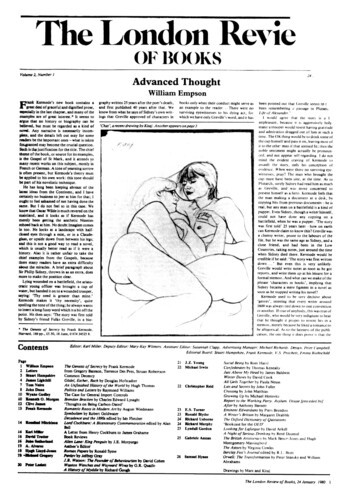The Tories’ Death-Wish
Kenneth O. Morgan, 15 May 1980
‘What baffles one is the persistence of the party in a cause that was politically so calamitous.’ These perceptive words by Lord Blake, the foremost historian of the Conservative Party, aptly sum up the handling of the issues of protective tariffs and imperial preference by the Conservative or Unionist Party between 1903 and 1914. These Edwardian years were dominated by the Liberals, and especially by Lloyd George’s populistic brand of democratic radicalism and social reform. Yet the story is not so much one of the Liberals outplaying their sluggish rivals with a skilful display of virtuosity, as of the Tories, with resolute and impacable persistence, shooting through their own goal. The electoral landslide of January 1906 was almost entirely the product of Unionist mistakes, even though a Liberal majority of some dimensions was highly probable. The speed with which the deep divisions within Liberal ranks over the Boer War were healed was entirely due to the incompetence of their opponents. Saddled with the Dear Loaf and Rome on the Rates, with Chinese Slavery and Taff Vale, with Randlords and Landlords, Unionist candidates in constituency after constituency went down to inevitable and grinding defeat. Food taxes were their supreme liability, one fully exploited by the Liberals, who were able to point to recent improvements in the terms of trade, through an export-led boom.


